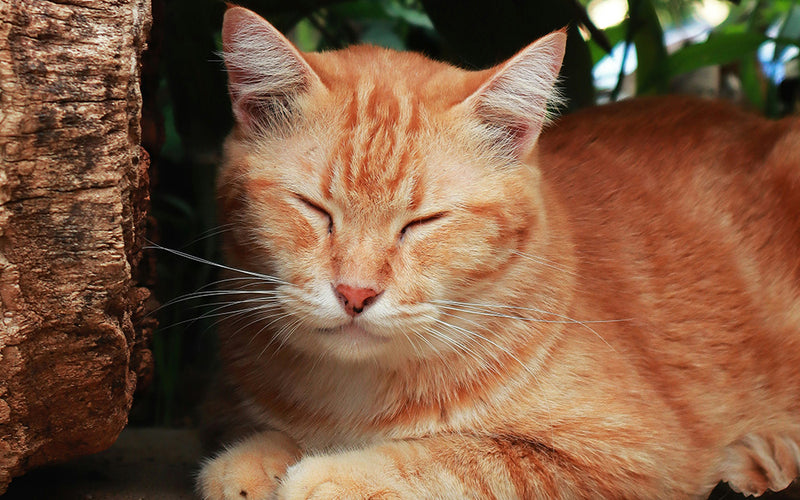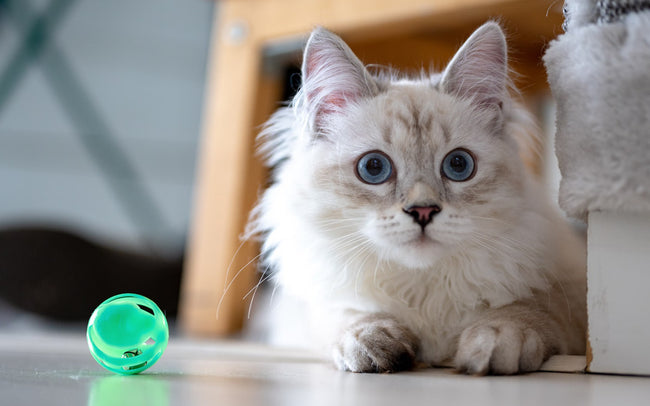|
While it’s common knowledge that cats sleep a lot, the reasons behind their extensive snoozing are deeply rooted in their evolutionary biology, health needs, and mental well-being. Cats, even domesticated ones, retain instincts from their wild ancestors who needed to conserve energy for hunting. Here are some insights into why cats rest as much as they do and how sleep impacts their health: |
1. Evolutionary Instincts: Energy Conservation
Cats are naturally inclined to conserve energy to prepare for intense bursts of activity, such as hunting, even if they’re now indoor pets. This evolutionary adaptation has led to sleep patterns where cats rest for 12-16 hours a day, often in short, light sleep cycles that allow them to remain alert to their surroundings.
2. Sleep for Physical and Mental Health
Sleep is essential for your cat’s physical recovery and mental health. During deep sleep, which typically lasts for short periods, cats experience REM (Rapid Eye Movement), a state that allows them to “dream” and process daily events. This helps them manage stress and maintain emotional balance, similar to the role of REM sleep in humans.
3. Environmental Influence on Sleep
Cats are highly sensitive to their surroundings. Providing a quiet, secure area helps them achieve restful sleep. Environmental factors like noise or changes in household dynamics can disrupt their sleep. Ideal sleep spaces are quiet, elevated, and allow cats to feel secure while staying alert to any activity around them.
4. The Role of Diet and Hydration in Sleep
Diet and hydration significantly impact sleep. A high-quality, protein-rich diet can help regulate a cat’s energy and support restful sleep. Additionally, ensuring they have access to clean water throughout the day promotes balanced hydration, which is essential for both alertness and relaxation. Dehydration, on the other hand, may result in lethargy, while an imbalanced diet can lead to restless or interrupted sleep patterns.
5. Age and Activity Level Influence Sleep Needs
Young kittens and senior cats have higher sleep needs due to growth and age-related physical demands. Adult cats have more balanced sleep patterns, but sleep changes in adult cats may indicate health issues that should be monitored. Providing age-appropriate spaces for rest and play helps support their sleep and activity needs.
6. Signs of Sleep Issues to Monitor
It’s normal for cats to sleep a lot, but sudden changes in sleep patterns could indicate health concerns. For instance, excessive sleepiness, unusual lethargy, or decreased sleep may all be reasons to check with a veterinarian to rule out potential issues like diabetes, arthritis, or anxiety.
Conclusion: Supporting Healthy Sleep Habits
Cats have unique sleep needs that stem from their evolutionary history and individual health requirements. By providing a safe, comfortable environment and paying attention to diet and hydration, you can support your cat’s natural sleep patterns, helping them stay happy, healthy, and ready to play when awake.
Sources
Hill’s Pet: Why Do Cats Sleep So Much?
Catster: Why Do Cats Sleep So Much? Vet-Approved Reasons
The Dodo: Why Do Cats Sleep So Much? A Vet Explains
Reader’s Digest: Why Do Cats Sleep So Much—and How Much Do They Actually Sleep?




